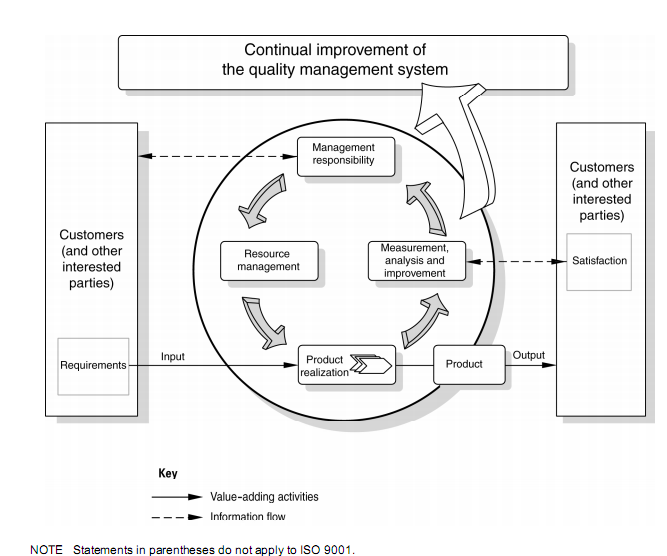ISO 9001-Quality Management System Certification
What is ISO 9000
ISO 9000 is a family of standards for quality management systems. ISO 9000 is maintained by ISO, the International Organization for Standardization and is administered by accreditation and certification bodies. The rules are updated, as the requirements motivate changes over time. Some of the requirements in ISO 9001:2008 (which is one of the standards in the ISO 9000 family) include
● a set of procedures that cover all key processes in the business;
● monitoring processes to ensure they are effective;
● keeping adequate records;
● checking output for defects, with appropriate and corrective action where necessary;
● regularly reviewing individual processes and the quality system itself for effectiveness; and
● facilitating continual improvement
A company or organization that has been independently audited and certified to be in conformance with ISO 9001 may publicly state that it is "ISO 9001 certified" or "ISO 9001 registered". Certification to an ISO 9001 standard does not guarantee any quality of end products and services; rather, it certifies that formalized business processes are being applied.
Although the standards originated in manufacturing, they are now employed across several types of organizations. A "product", in ISO vocabulary, can mean hardware, software, services, or processed product.
ISO 9000 family:
1. ISO 9000 Quality management systems-Fundamentals and Vocabulary
2. ISO 9001 Quality management system-Requirements
3. ISO 9004 Management for sustained success of an organization- A quality management approach.
4. ISO 19011 Guidelines for quality and/or environment management systems auditing
Quality Management Principles
Eight quality management principles have been identified that can be used by top management in order to lead the organization towards improved performance.
1. Customer focus
2. Leadership
3. Involvement of people
4. Process approach
5. System approach to management
6. Continual improvement
7. Factual approach to decision making
8. Mutually beneficial supplier relationships
The model of a process-based quality management system
PDCA process management model used in the ISO 9001 enhances the compatibility with other standard such as Environment Quality Management, and set up a basis and condition for other management system.

The characteristic of ISO 9000 family
Applied for all types of organization
Meet the requirements of all types of business
Language clear, easy to understand and use
Reduce the compellent requirements of documented procedure
Connect the quality management system with management process of organization
Emphasis on the continual improvement
Emphasis the power of quality management system is the continual customer’s satisfaction
Has a good compatibility with ISO 14000
Correspond to the ISO 9004
Has been taken all related parties into consideration
Advantages of ISO 9001 Certification
1、Create a more efficient, effective operation
2、Increase customer satisfaction and retention
3、Reduce audits
4、Enhance marketing
5、Improve employee motivation, awareness, and morale
6、Promote international trade
7、Increases profit
8、Reduce waste and increases productivity.






